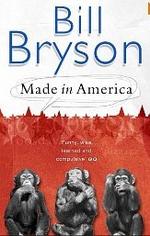Rereading non-fiction seemed to work even in the middle of the funk, so I reread three Gerald Durrell books in row. The first one I picked up was A Zoo in my Luggage, in which Durrell has finally decided to start his own zoo rather than just collect for other zoos. The year is 1957 and in his optimism he – and his wife Jacquie – decide to do the collecting first, assuming that any town in Britain would be happy to house them once they get back. Who wouldn’t want a zoo? Thus in in the first part of the book they return to the Cameroons, where Durrell has been before, and go to stay with the Fon of Bafut.
What follows is an account of the antics of the animals, the hunters and the Fon and his «court». The narrative follows a path that will be familiar to anyone who has ever read a book by Durrell, a mixture of hunting and stalking episodes (a fair amount of which end in failure), quite a few hunters turning up with «beef» to sell and ensuing haggling, accounts of how the animals fare once caught, some take well to captivity, some don’t, and the social interaction with the people of Bafut.
I find the narrative fascinating, not least because I am interested in the animals and the practicalities of catching them and keeping them alive and happy. The books from the Cameroons are especially fascinating, though, as Durrell faithfully records all dialogue in the original «pidgin» (including his own, as he speaks it fluently, as far as I can tell), and for a language nerd this is obviously great fun. The aforementioned «beef» for example means any animal (whether mammal, bird, amphibian, reptile or insect). And a conversation may progress like this:
‘Na whatee dere for inside?’
‘Na squill-lill, sah.’
(…)
‘Na whatee dis beef squill-lill?’
‘Na small beef, sah.’
‘Na, bad beef? ‘E go chop man?’
‘No, sah, at all. Dis one na squill-lill small, sah… na picken.’
(…)
‘Dis beef, my friend. Na fine beef dis, I like um too much. But ‘e be picken, eh? Some time ‘e go die-o, eh?’
‘Yes, sah,’ agreed the hunter gloomily.
‘So I go pay you two shilling now, and I go give you book. You go come back for two week time, eh, and if dis picken ‘e alive I go pay you five five shilling more, eh? You agree?’
‘Yes, sah, I agree,’ said the hunter, grinning delightedly.
I am not blind to the inherent racism in the narrative, there is more than a little condescension in the way Durrell describes the people of Bafut, even while he obviously regards the Fon as a friend he also presents him as something of a spectacle. Durrell himself is not unaware of this, he is nervous when first contacting the Fon to ask if he may return as he is not entirely sure how the Fon will have reacted to the way he was presented in Durrell’s previous book from the area (The Beagles of Bafut, which I read next). It turns out the Fon is delighted to be a celebrity, and even his reactions in this regard add to the somewhat «simple savage» image Durrell presents (whether consciously or not).
The latter part of the book deals with the difficulty of getting the animals to Britain alive, healthy and happy, and then the naively unforeseen difficulty of finding somewhere to house the zoo. Some quite funny episodes occur while the animals are housed temporarily as a Christmas attraction in a department store basement, for example, while the serach for a permanent location continues. Spoiler: It all turns out well.
Having finished A Zoo in my Luggage it seemed natural to follow it with The Beagles of Bafut, which chronologically comes first (the trip was made in 1949). It follows much the same pattern, but ends once the collection is safely in Britain where the animals are sent off to various zoos both in Britain and in the rest of Europe.
Not feeling up to anything else and not being quite done with Durrell, I then picked up The Drunken Forest, in which Gerald and Jacquie make a collection trip to Argentina and Paraguay (in 1954). The setting is therefore completely different, but the narrative follows the same familiar pattern. In this case the trip is complicated by a coup and unfortunately the Durrells have to leave without their collection, which gives another insight into the possible troubles one can run into as an animal collector.
A sort of postscript: There are many opinions about zoos, and my own feelings on the subject are ambivalent. On the one hand keeping animals captive to provide entertainment for humans is obviously problematic. On the other hand, modern zoos are part of the global conservation effort, with captive breeding programmes for endangered species (and Durrell was a pioneer in this area, «Durrell Wildlife Park was the first zoo to house only endangered breeding species» according to Wikipedia, and Durrell refused to exhibit animals simply for show) and there is much to be said for their role in educating the general public, creating interest in biodiversity and thereby helping push initiatives to conserve the animals in their natural habitats.
